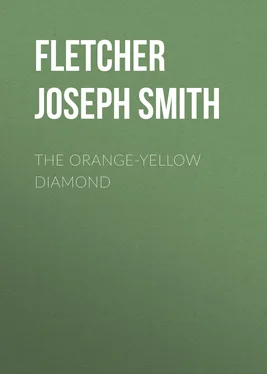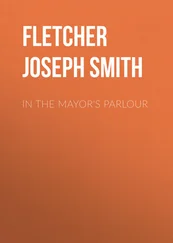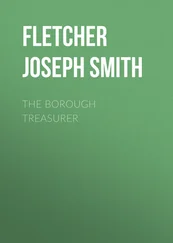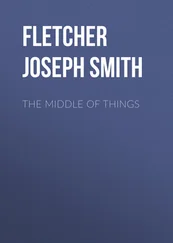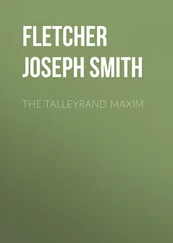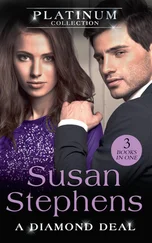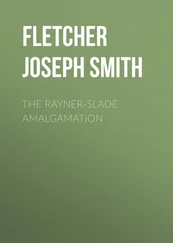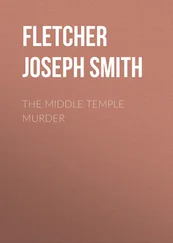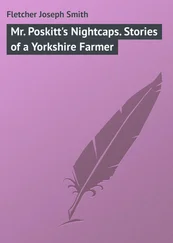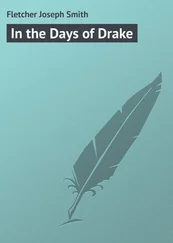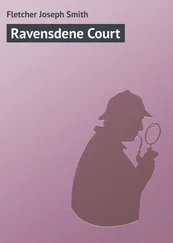Joseph Fletcher - The Orange-Yellow Diamond
Здесь есть возможность читать онлайн «Joseph Fletcher - The Orange-Yellow Diamond» — ознакомительный отрывок электронной книги совершенно бесплатно, а после прочтения отрывка купить полную версию. В некоторых случаях можно слушать аудио, скачать через торрент в формате fb2 и присутствует краткое содержание. Жанр: foreign_prose, Классический детектив, foreign_detective, foreign_antique, на английском языке. Описание произведения, (предисловие) а так же отзывы посетителей доступны на портале библиотеки ЛибКат.
- Название:The Orange-Yellow Diamond
- Автор:
- Жанр:
- Год:неизвестен
- ISBN:нет данных
- Рейтинг книги:5 / 5. Голосов: 1
-
Избранное:Добавить в избранное
- Отзывы:
-
Ваша оценка:
- 100
- 1
- 2
- 3
- 4
- 5
The Orange-Yellow Diamond: краткое содержание, описание и аннотация
Предлагаем к чтению аннотацию, описание, краткое содержание или предисловие (зависит от того, что написал сам автор книги «The Orange-Yellow Diamond»). Если вы не нашли необходимую информацию о книге — напишите в комментариях, мы постараемся отыскать её.
The Orange-Yellow Diamond — читать онлайн ознакомительный отрывок
Ниже представлен текст книги, разбитый по страницам. Система сохранения места последней прочитанной страницы, позволяет с удобством читать онлайн бесплатно книгу «The Orange-Yellow Diamond», без необходимости каждый раз заново искать на чём Вы остановились. Поставьте закладку, и сможете в любой момент перейти на страницу, на которой закончили чтение.
Интервал:
Закладка:
"You know this young man, Miss Wildrose?" he asked. "You've met him before?"
"Yes," replied Zillah, confidently. "He's Mr. Lauriston. Let me go in there, please. Can nothing be done?"
But Ayscough only shook his head. There was nothing to be done—but to await the arrival of the doctor. They followed the girl into the parlour and stood by while she bent over the dead man. She made no demonstration of grief, and when Ayscough presently suggested that she should go upstairs until the doctor had come, she went quietly away.
"Hadn't we better lift him on that sofa?" suggested Lauriston.
"Not till our people and the police-surgeon have seen him," answered Ayscough, shaking his head. "I want to know all about this—he may have died a natural death—a seizure of some sort—and again, he mayn't—They'll be here in a minute."
Lauriston presently found himself a passive spectator while a police-inspector, another man in plain clothes, and the doctor examined the body, after hearing Ayscough's account of what had just happened. He was aware that he was regarded with suspicion—the inspector somewhat brusquely bade him stay where he was: it would, indeed, have been impossible to leave, for there was a policeman at the door, in which, by his superior's orders, he had turned the key. And there was a general, uncomfortable sort of silence in the place while the doctor busied himself about the body.
"This man has been assaulted!" said the doctor, suddenly turning to the inspector. "Look here!—he's not only been violently gripped by the right arm—look at that bruise—but taken savagely by the throat. There's no doubt of that. Old and evidently feeble as he was, the shock would be quite enough to kill him. But—that's how it's been done, without a doubt."
The inspector turned, looking hard at Lauriston.
"Did you see anybody leaving the place when you entered?" he asked.
"There was no one about here when I came in—either at the street door or at the side door," replied Lauriston, readily. "The whole place was quiet—deserted—except for him. And—he was dead when I found him."
The inspector drew Ayscough aside and they talked in whispers for a few minutes, eyeing Lauriston now and then; eventually they approached him.
"I understand you're known here, and that you live in the neighbourhood," said the inspector. "You'll not object if the sergeant goes round with you to your lodgings—you'll no doubt be able to satisfy him about your respectability, and so on. I don't want to suggest anything—but—you understand?"
"I understand," replied Lauriston. "I'll show or tell him anything he likes. I've told you the plain truth."
"Go with him now," directed the inspector; "you know what to do, Ayscough!"
Half an hour later, when the dead man had been carried to his room, and the shop and house had been closed, Melky Rubinstein, who had come in while the police were still there, and had remained when they had gone, stood talking to Zillah in the upstairs sitting-room. Melky was unusually grave: Zillah had already gathered that the police had some suspicion about Lauriston.
"I'll go round there and see what the detective fellow's doing with him," said Melky. "I ain't got no suspicion about him—not me! But—it's an awkward position—and them rings, too! Now, if he'd only ha' shown 'em to me, first, Zillah—see?"
"Do go, Melky!" urged Zillah tearfully. "Of course, he'd nothing to do with it. Oh!—I wish I'd never gone out!"
Melky went downstairs. He paused for a moment in the little parlour, glancing meditatively at the place where the old man had been found dead. And suddenly his keen eyes saw an object which lay close to the fender, half hidden by a tassel of the hearthrug, and he stooped and picked it up—a solitaire stud, made of platinum, and ornamented with a curious device.
CHAPTER FIVE
THE TWO LETTERS
Once outside the shop, Lauriston turned sharply on the detective.
"Look here!" he said. "I wish you'd just tell me the truth. Am I suspected? Am I—in some way or other—in custody?"
Ayscough laughed quietly, wagging his head.
"Certainly not in custody," he answered. "And as to the other—well, you know, Mr. Lauriston, supposing we put it in this way?—suppose you'd been me, and I'd been you, half-an-hour ago? What would you have thought if you'd found me in the situation and under the circumstances in which I found you? Come, now!"
"Yes," replied Lauriston, after a moment's reflection. "I suppose it's natural that you should suspect me—finding me there, alone with the old man. But—"
"It's not so much suspicion in a case of this sort, as a wish to satisfy one's self," interrupted the detective. "You seem a gentleman-like young fellow, and you may be all right. I want to know that you are—I'd like to know that you are! It would be no satisfaction to me to fasten this business on you, I can assure you. And if you like to tell me about yourself, and how you came to go to Multenius's—why, it would be as well."
"There's not much to tell," answered Lauriston. "I came from Scotland to London, two years ago or thereabouts, to earn my living by writing. I'd a bit of money when I came—I've lived on it till now. I've just begun to earn something. I've been expecting a cheque for some work for these last ten or twelve days, but I was running short last week—so I went to that place to pawn my watch—I saw the young lady there. As my cheque hadn't arrived today, I went there again to pawn those rings I told you about and showed you. And—that's all. Except this—I was advised to go to Multenius's by a relation of theirs, Mr. Rubinstein, who lodges where I do. He knows me."
"Oh, Melky Rubinstein!" said Ayscough. "I know Melky—sharp chap he is. He sold me this pin I'm wearing. Well, that seems quite a straightforward tale, Mr. Lauriston. I've no doubt all will be satisfactory. You've friends in London, of course?"
"No—none," replied Lauriston. "And scarcely an acquaintance. I've kept to myself—working hard: I've had no time—nor inclination, either—to make friends. Here's the house where I lodge—it's not much of a place, but come in."
They had reached Mrs. Flitwick's house by that time, and Mrs. Flitwick herself was in the narrow, shabby passage as they entered. She immediately produced two letters.
"Here's two letters for you, Mr. Lauriston," she said, with a sharp glance at Ayscough. "One of 'em's a registered—I did sign for it. So I kept 'em myself, instead of sending 'em up to your room."
"Thank you, Mrs. Flitwick," said Lauriston. He took the letters, saw that the writing on the registered envelope was his old friend John Purdie's, and that the other letter was from the magazine to which he had sold his stories, and turned to Ayscough. "Come up to my room," he continued. "We'll talk up there."
Ayscough followed him up to his room—once inside, and the door shut, Lauriston tore open the letter from the magazine, and extracted a printed form and a cheque for twenty guineas. He took one look at them and thrust them into the detective's hands.
"There!" he said, with a sigh of mingled relief and triumph. "There's a proof of the truth of one statement I made to you! That's the expected cheque I told you of. Excuse me while I look at the other letter."
Out of the registered letter came a bank-note—for twenty pounds—and a hastily scribbled note which Lauriston eagerly read. "Dear old Andie," it ran, "I've only just got your letter, for I've been from home for a fortnight, and had no letters sent on to me. Of course you'll make me your banker until your book's finished—and afterwards, too, if need be. Here's something to be going on with—but I'm coming to London in a day or two, as it happens, and will go into the matter—I'll call on you as soon as I arrive. Excuse this scrawl—post time. Always yours, John Purdie."
Читать дальшеИнтервал:
Закладка:
Похожие книги на «The Orange-Yellow Diamond»
Представляем Вашему вниманию похожие книги на «The Orange-Yellow Diamond» списком для выбора. Мы отобрали схожую по названию и смыслу литературу в надежде предоставить читателям больше вариантов отыскать новые, интересные, ещё непрочитанные произведения.
Обсуждение, отзывы о книге «The Orange-Yellow Diamond» и просто собственные мнения читателей. Оставьте ваши комментарии, напишите, что Вы думаете о произведении, его смысле или главных героях. Укажите что конкретно понравилось, а что нет, и почему Вы так считаете.
